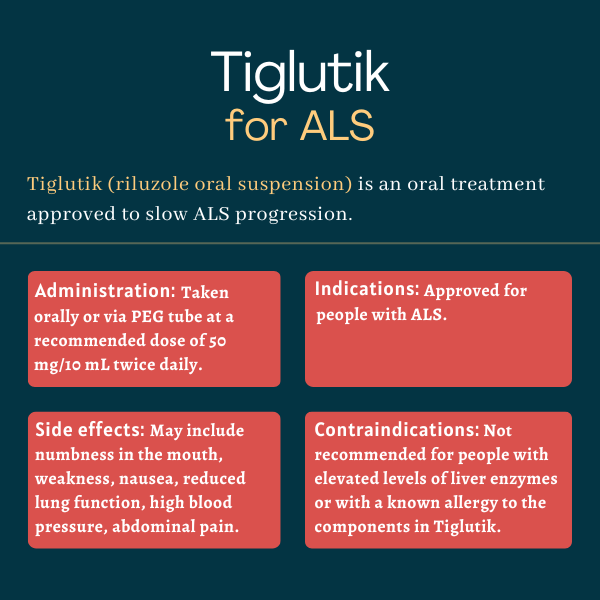
FAQs about Tiglutik
The U.S. Food and Drug Administration (FDA) approved Tiglutik as a treatment for amyotrophic lateral sclerosis in 2018. It was initially indicated for oral administration only, but its label was expanded in 2019 to enable administration via a PEG tube, or a feeding tube placed through the belly into the stomach.
Amyotrophic lateral sclerosis (ALS) is a progressive disease in which symptoms continue to worsen over time. Tiglutik and other riluzole-based medications can prolong the time to needing a tracheostomy (a tube in the neck to help with breathing) and/or extend survival in some patients, but these therapies will generally not reduce existing ALS symptoms.
A clinical trial that supported Tiglutik’s approval, which tested the tablet formulation Rilutek, found evidence of a significant extension in the time to needing a breathing tube in the neck or death one year after treatment initiation. But because each patient will have a different disease experience, each person’s treatment response also will be unique.
There is no known interaction between Tiglutik and alcohol. However, because alcohol can cause liver damage, which is also a known side effect of riluzole-based medications, patients are advised to talk with their healthcare team to understand when and how much alcohol is safe for them to drink.
Clinical trial data has shown that Tiglutik can slow disease progression in some amyotrophic lateral sclerosis patients. However, existing medications cannot cure the disease. Patients will continue to progress over time and will experience significant limitations despite treatment.
Related Articles
 Fact-checked by
Fact-checked by 




